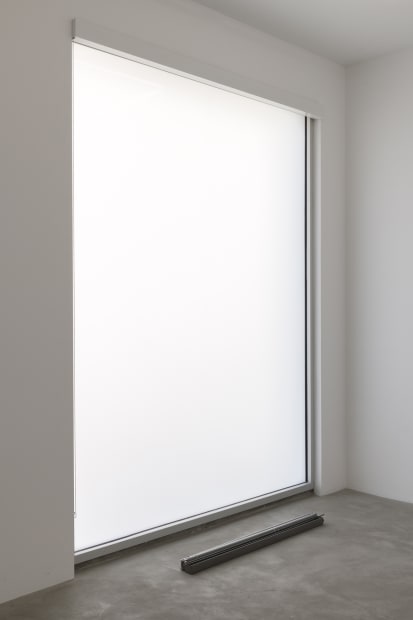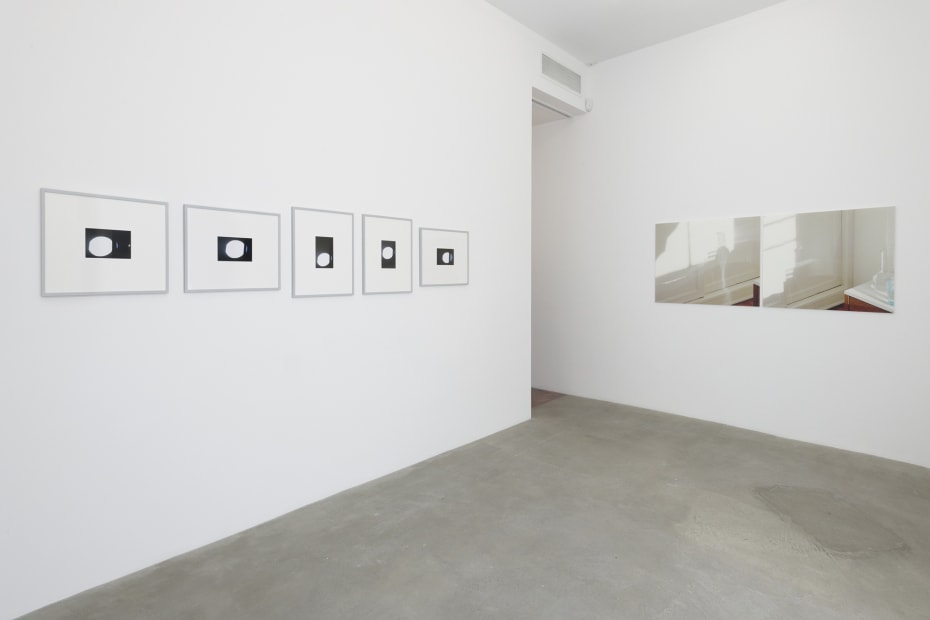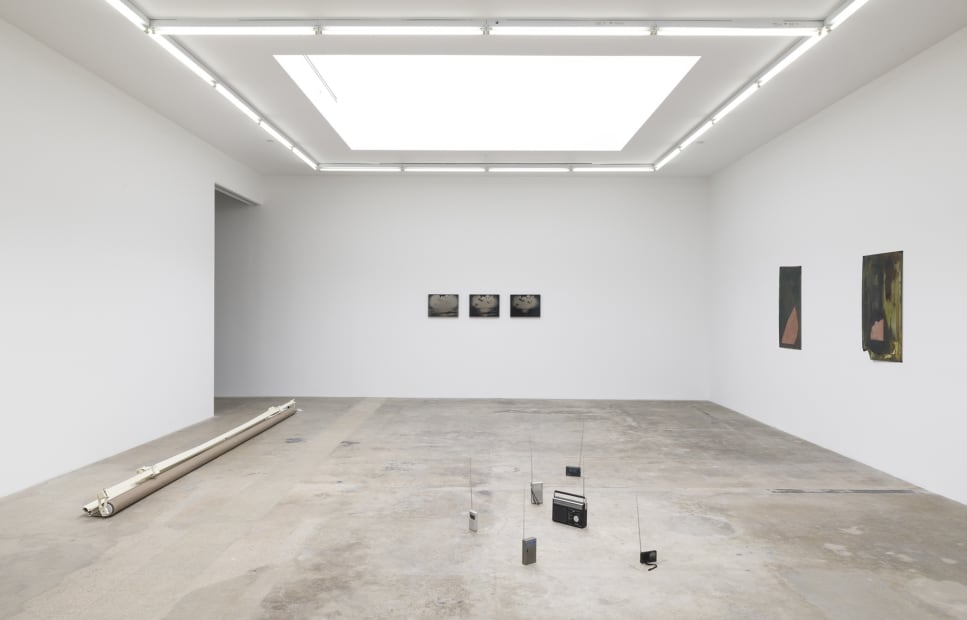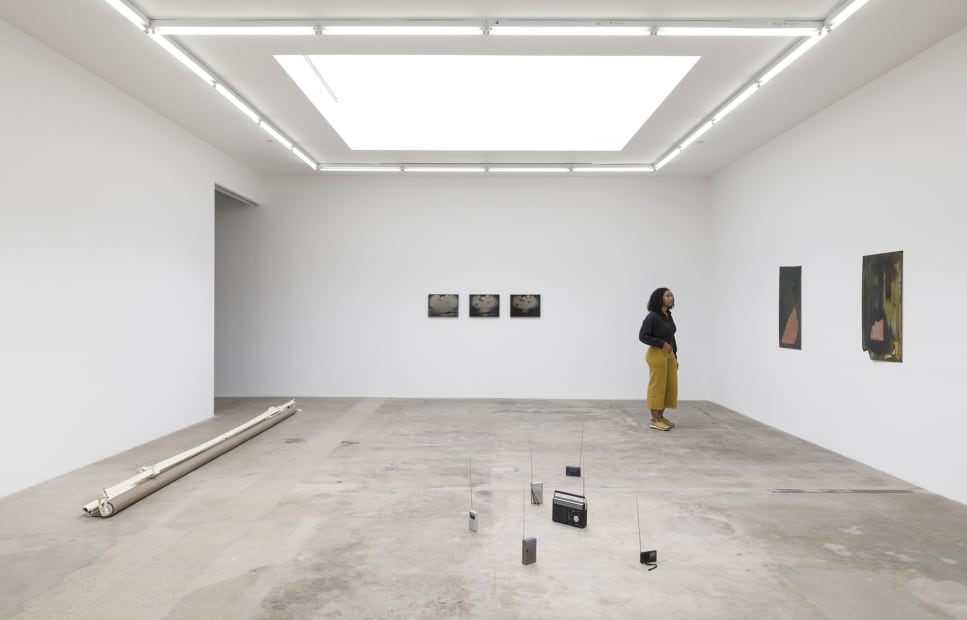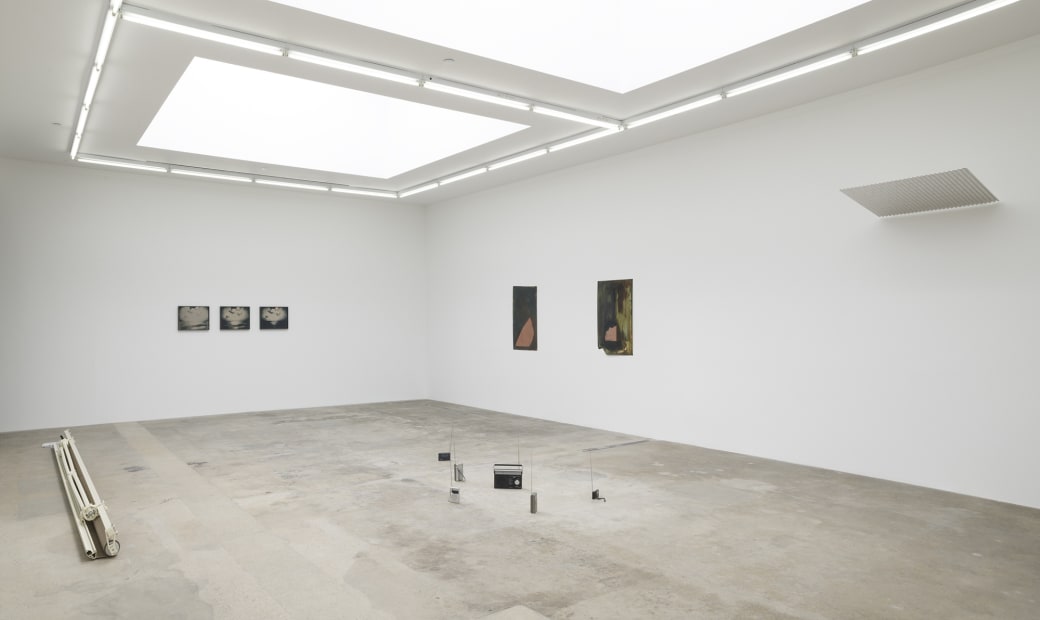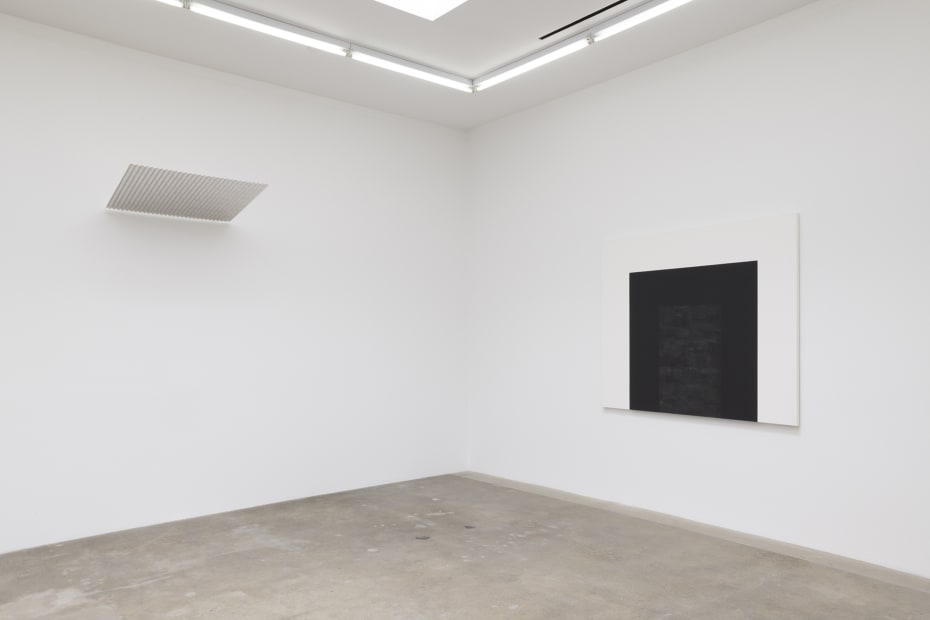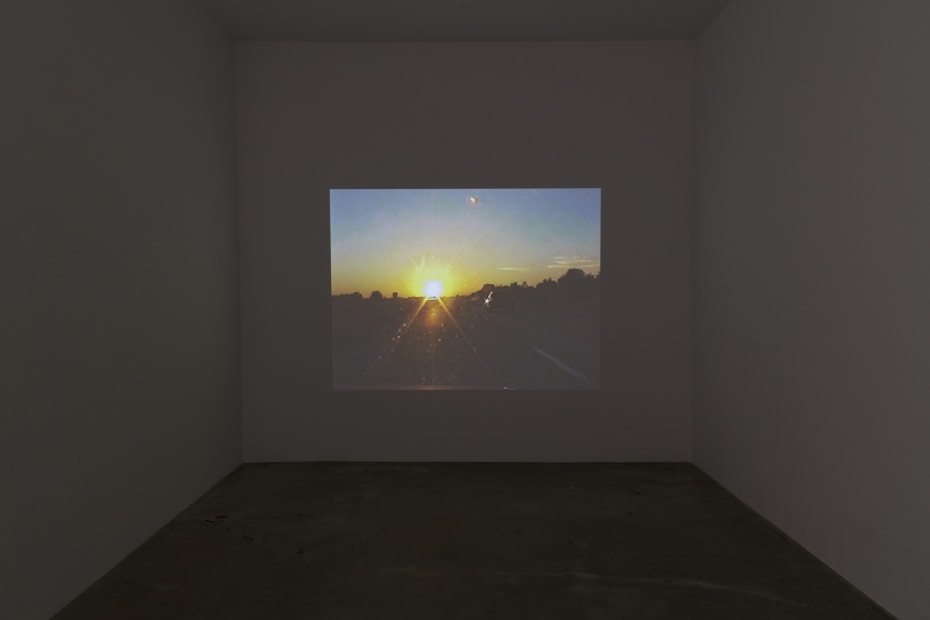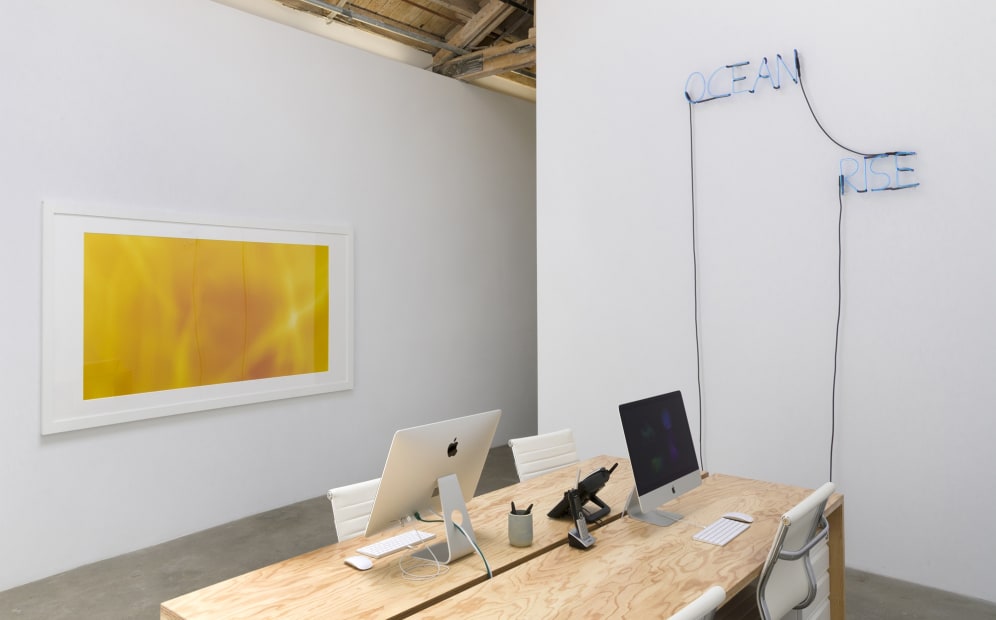Living in a Lightbulb curated by Jenny Jaskey and Mia Locks: Tanya Bonakdar Gallery, Los Angeles
It’s like living in a light bulb, with the leaves
Like filaments and the sky a shell of thing, transparent glass
Enclosing the late heaven of a summer day, a canopy
Of incandescent blue above the dappled sunlight golden on the grass.
— Sally’s Hair by John Koethe (excerpt)
Tanya Bonakdar Gallery is pleased to present Living in a Lightbulb, curated by Jenny Jaskey and Mia Locks, a two-part exhibition in the gallery’s New York and Los Angeles locations. Artists in the exhibition make use of light and heat —the sensoria of summer — to emphasize the slow, dynamic process of our encounter with these phenomena. Some artists employ sunlight as raw material to make images. Others point to the way energy directs and regulates time and behavior. Orienting sight, even survival, within the vagaries of the cosmos, “living in a light bulb” is a precarious and fundamentally interdependent proposition.
Works in the New York exhibition include a site-specific installation by Bill Jenkins that redirects daylight from the gallery’s front window to a back room. This sculpture of light illuminates a picture of the Cosmos by Scott Lyall, an image animated by light reflecting off sub-visible information embedded in NanoFoil. Lisa Oppenheim’s heliograms capture the sea and sky at different times of day. Olafur Eliasson’s suspended rotating orb emits a hazy orange glow, the light of a single frequency.
Topological transformation, and the role of natural energy in the reproduction and maintenance of life, connect several works in the exhibition. A monotype by Sam Lewitt recreates a scene from a Cesariano etching that documents the discovery of fire in the household, and Cauleen Smith reimagines archival footage as a conversation between humanity and planet Earth about impending ecological collapse. Transformation and decay are recurring themes in the work of Kelly Akashi, too, whose handblown glass orb is held, tenuously, as it filters light.
In Los Angeles, several artists actualize the material properties of light and heat: a painting by pioneering Light and Space artist Mary Corse incorporates glass microspheres in its surface that refract light; Sam Lewitt etches in Pyralux, a copperclad plastic laminate with high thermal performance, used in ultra-thin circuit boards and electronics. Light seems to flicker and burst across James Welling’s large dégradé screen, a work the artist makes by filtering light onto photo paper. And in a dryly humorous conceptual work from 1970, Reading Position for a Second Degree Burn, Dennis Oppenheim uses UV rays to develop an image of a book on his skin.
Works by Uta Barth, Martin Boyce, and K.R.M. Mooney consider the interplay of light with the built environment — with airplane windows, sun shades, and the shape of a room. Mooney’s pair of steel sculptures echo the forms of light shields, like domestic blinds or awnings. A sculpture by Ann Veronica Janssens uses a modest sheet of corrugated aluminum to imagine moonlight within the gallery’s architecture.
In the summer, we say the days are longer, as sunlight stretches into evening. Paul Ramirez Jonas attempts to catch the light, extend the day further, by driving as fast as possible towards the setting sun. In the Arctic circle, where the sun never sets this time of year, Robin Watkins makes field recordings of solar wind, aurora borealis and other magnetic storms. In a poem made from neon lights, David Horvitz connects the gravitational pull of the moon with the rise and fall of the ocean tide. His work reminds us of the gradual change of summer, sunrise to sunset.
Jenny Jaskey is Distinguished Lecturer in the Department of Art & Art History at Hunter College and Director and Curator of the Artist's Institute, New York, where she has made exhibitions with Hilton Als, Tauba Auerbach, Pierre Huyghe, Lucy McKenzie, Carolee Schneemann, and Haim Steinbach, among other artists. She is co-editor with Christoph Cox and Suhail Malik of Realism Materialism Art (CCS Bard/Sternberg, 2015) and recent catalog writing includes essays on the work of Nina Canell, Ian Cheng, and Laura Owens.
Mia Locks is Senior Curator and Head of New Initiatives at the Museum of Contemporary Art, Los Angeles (MOCA). Her exhibitions include the Whitney Biennial (2017); Greater New York (2015); Math Bass: Off the Clock (2015); IM Heung-soon: Reincarnation (2015); The Little Things Could Be Dearer (2014); Samara Golden: The Flat Side of the Knife (2014); and Cruising the Archive: Queer Art and Culture in Los Angeles, 1945-1980 (2011). She was a 2018 fellow at the Center for Curatorial Leadership, New York.
All installation images above: Photo by Jeff McLane
